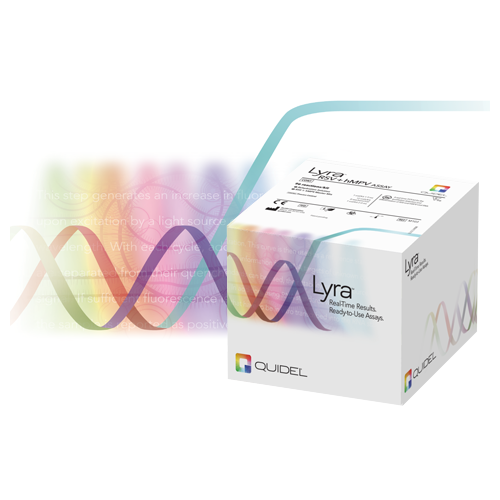Browse our products
Want to know more?
Quidel Respiratory Syncytial Virus (RSV) Rapid Tests
Respiratory syncytial virus (RSV) is a very common cause of respiratory tract infection especially in young children.
RSV is a member of the Paramyxoviridae family of viruses. There are two types of RSV, type A and B and there are many strains. RSV has an RNA genome that encodes 10 viral proteins. The virus has a lipid envelope that contains viral glycoproteins that are involved in entry of the virus into cells and fusion of the viral envelope with cell membranes. Much of the pathology caused by RSV is related to damage of the lining of the small airways of the respiratory tract.
Diagnostic tests performed on specimens taken from the respiratory tract provide a useful aid to the diagnosis of RSV. Rapid antigen diagnostic test (RADTs), such as lateral flow tests, can be performed at the site of patient care such as the physicians’ office or emergency department. These tests offer the possibility of identifying an infected patient early in the course of the disease and during the patient’s visit to the health care facility. Early diagnosis at the point-of-care can have a positive impact on clinical management decisions.
Related Products
PROFESSIONAL CERTIFICATION. THIS WEBSITE IS INTENDED FOR USE BY HEALTHCARE PROFESSIONALS ONLY.
Getz Healthcare shares your commitment to achieving the best possible patient outcomes by connecting healthcare professionals with the finest medical technologies and supplies in the market.
By continuing, you are acknowledging that you are a registered healthcare professional with a valid certification.
No, I Disagree
